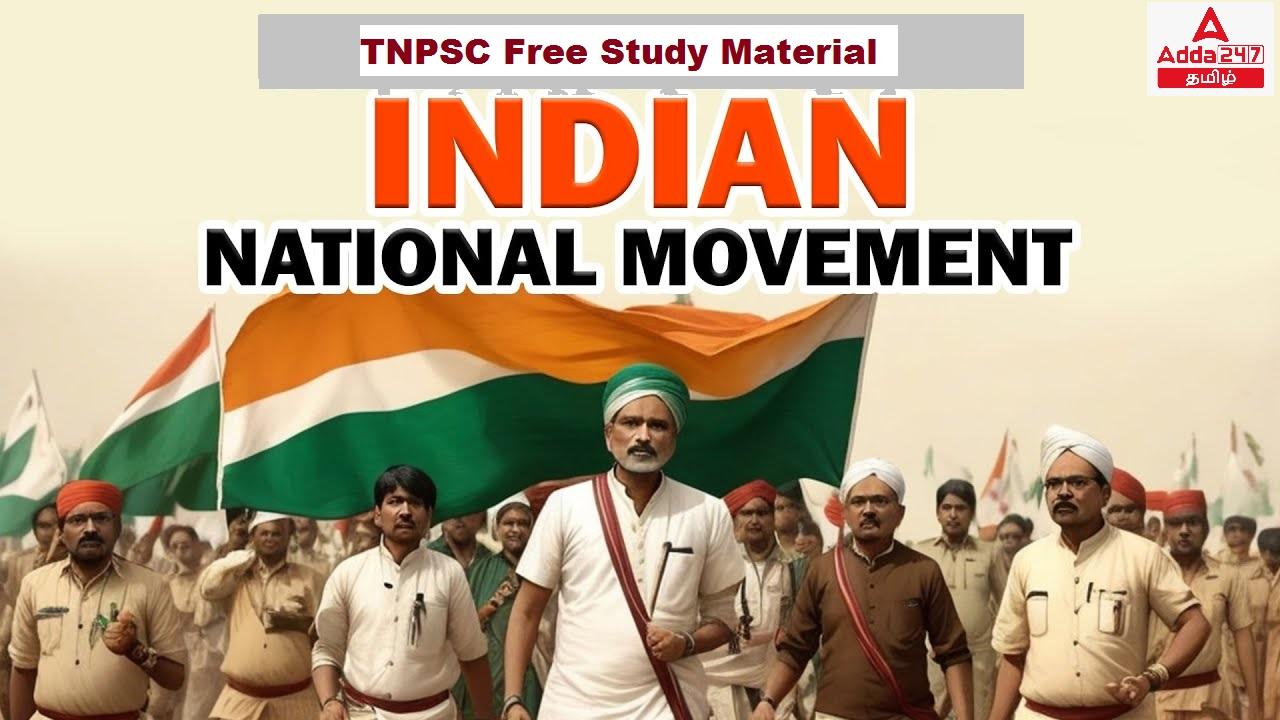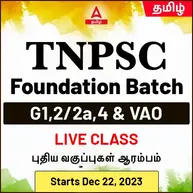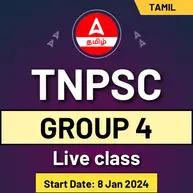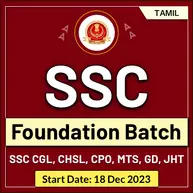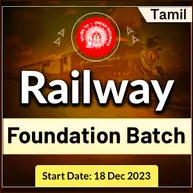இந்தக் கட்டுரையில், TNPSC குரூப் 1, குரூப் 2, குரூப் 2A, குரூப் 4 மாநிலப் போட்டித் தேர்வுகளான TNUSRB, TRB, TET, TNEB போன்றவற்றுக்கான முறைகள் இலவசக் குறிப்புகளைப் பெறுவீர்கள்.தேர்வுக்கு தயாராவோர் இங்குள்ள பாடக்குறிப்புகளை படித்து பயன்பெற வாழ்த்துகிறோம்.
Indian National Congress
Introduction
- The idea of forming a political organisation that would raise issues and grievances against the colonial rule did not emerge in a vacuum.
- Between 1875 and 1885 there were many agitations against British policies in India
- The Indian textile industry was campaigning for imposition of cotton import duties in 1875.
- In 1877, demands for the Indianisation of Government services were made vociferously.
- There were protests against the Vernacular Press Act of 1878. In 1883, there was an agitation in favour of the Ilbert Bill
- But these agitations and protests were sporadic and not coordinated.
- There was a strong realisation that these protests would not impact on the policy makers unless a national political organisation was formed.
- From this realisation was born the Indian National Congress.
- The concept of India as a nation was reflected in the name of the organisation. It also introduced the concept of nationalism.
INC formation
- December 1884- Allan Octavian Hume, a retired English ICS officer, presided over a meeting of the Theosophical Society in Madras.
- The idea of forming the Indian National Congress emerged in this meeting.
- 28 December 1885- The Indian National Congress was formed on in Bombay by A.O Hume.
- W C. Bannerjee, – First president of INC held in Bombay.
| INC Session | Year | President | Place |
| 1st Session | 1885 | WC Bannerjee | Bombay |
| 2nd Session | 1886 | Dadhabai Naoroji | Calcutta |
| 3rd Session | 1887 | Badruddin Tyabji | Madras |
The major objectives and demands Of INC
Constitutional
- It demanded Indian representation in the government.
- Creation of legislative councils at provincial and central level
Economic
- Reduction in the land revenue and protection of peasants against exploitation of the zamindars.
- Imposition of heavy tax on the imported goods for the benefit of swadeshi goods.
Administrative
- Holding civil services exams in India as well as in England.
- Police reforms
- Reconsideration of forest laws
- Promotion of Indian industries and
- An end to unfair tariffs and excise duties.
Judicial
Because of the partial treatment against the Indian political activists by English judges it demanded the complete separation of the Executive and the Judiciary
**************************************************************************
| Adda247 TamilNadu Home page | Click here |
| Official Website=Adda247 | Click here |

